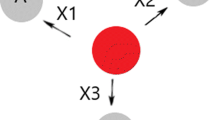Abstract
Securing the operation of ad hoc networking protocols is a multifaceted and complex problem that poses new and unique challenges. All network nodes constitute a self-organizing infrastructure, while operating in an inherently unreliable and insecure environment. The boundaries of an ad hoc network are blurred, if not inexistent, and its membership may frequently change. Without security measures, attackers have ample opportunity to control, disrupt, and degrade the services or even disable communications of other users. As a result, applications based on the ad hoc networking technology cannot proliferate, unless such vulnerabilities are eradicated. For example, search-and-rescue, law enforcement, or battlefield networks must guarantee secure and reliable communication, even if a significant fraction of the network nodes are disabled or controlled by an adversary. Similarly, users will not enable their portable devices to join and form ad hoc networks, unless access to the sought services is protected from compromise. This talk discusses threats and security measures, focusing on a comprehensive solution for secure and fault-tolerant communication in ad hoc networks. We discuss our design of a protocol suite that addresses the security of the route discovery and the security of the data transmission in ad hoc networks. The presented material reflects on-going research, as well as research conducted over the past four years at Cornell University under the supervision of Prof. Z. J. Haas.
Similar content being viewed by others
Author information
Authors and Affiliations
Editor information
Editors and Affiliations
Rights and permissions
Copyright information
© 2005 Springer-Verlag Berlin Heidelberg
About this paper
Cite this paper
Papadimitratos, P. (2005). Securing Ad Hoc Networks. In: Hutter, D., Ullmann, M. (eds) Security in Pervasive Computing. SPC 2005. Lecture Notes in Computer Science, vol 3450. Springer, Berlin, Heidelberg. https://doi.org/10.1007/978-3-540-32004-3_5
Download citation
DOI: https://doi.org/10.1007/978-3-540-32004-3_5
Publisher Name: Springer, Berlin, Heidelberg
Print ISBN: 978-3-540-25521-5
Online ISBN: 978-3-540-32004-3
eBook Packages: Computer ScienceComputer Science (R0)




